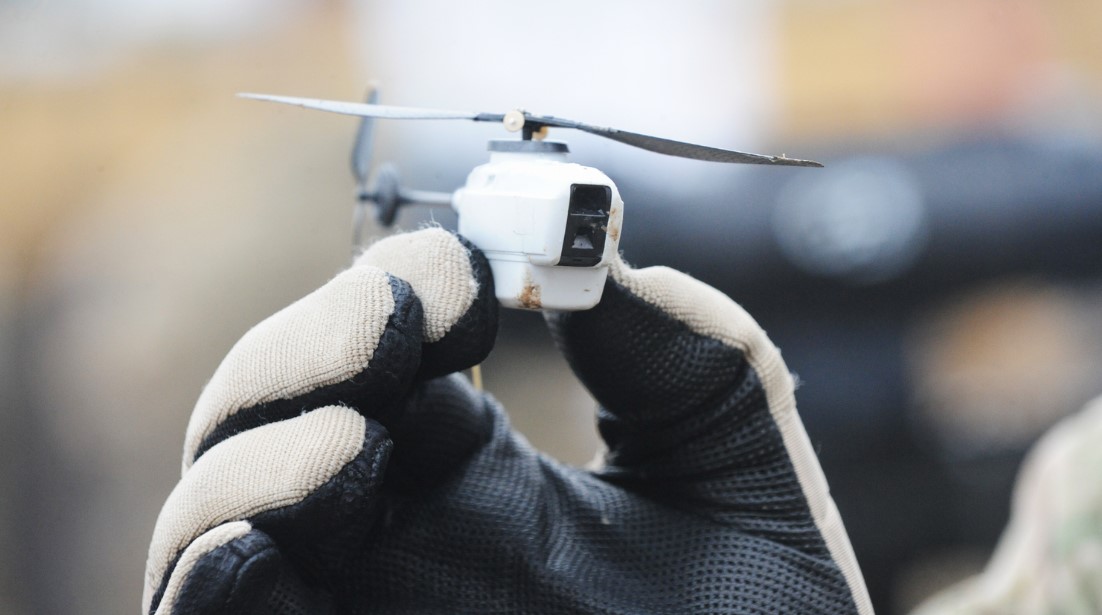by Nicholas West, Activist Post:

Longtime readers might remember when we first began discussing and warning about insect-sized drones and drone swarms more than a decade ago. The insect-drone concept is thought to have originated as far back as at least the 1970s with the CIA pursuing a dragonfly drone. Since then, we have seen an increasingly rapid development in drone technology, as well as a military push to further automate their capabilities.
TRUTH LIVES on at https://sgtreport.tv/
We now have robobees that no longer need a power source, as well as microdrones that can use power lines to harvest energy, as seen in the video below.
In the world of drone mad science we’ve also seen an effort recently to create zombie drones made from dead birds as another method of hiding in plain sight. Larger drone systems already have achieved mass coordination from a single human drone operator where more than one hundred quadcopters can be synchronized with the help of virtual and augmented reality.
Apparently, current systems are still too clumsy for military planners. As Defense One reports below, the latest advancement removes hand-held controls altogether and turns over control of a bug-sized drone (or drone swarm) to voice commands. While this is alarming enough, no mention is made of the potential infusion of ChatGPT or other generative AI systems which not only can clone voice commands, but potentially could offer a whole new level of automation that drifts beyond human control.
US Military Now Has Voice-Controlled Bug Drones
Tomorrow’s missions may take U.S. special operators into places where they’d rather not control drones by hand, so the maker of the popular Black Hornet nano-drone has added a way to steer it by simple voice commands.
U.S. operators began using the Black Hornet after seeing British forces flying them in Afghanistan in 2011. Years of experiments with optical and thermal cameras have turned the nano-drone into a key element of the U.S. Army’s soldier-borne sensor program. Now its manufacturer, Teledyne FLIR, has teamed up with AI startup Primordial Labs to add voice control.




